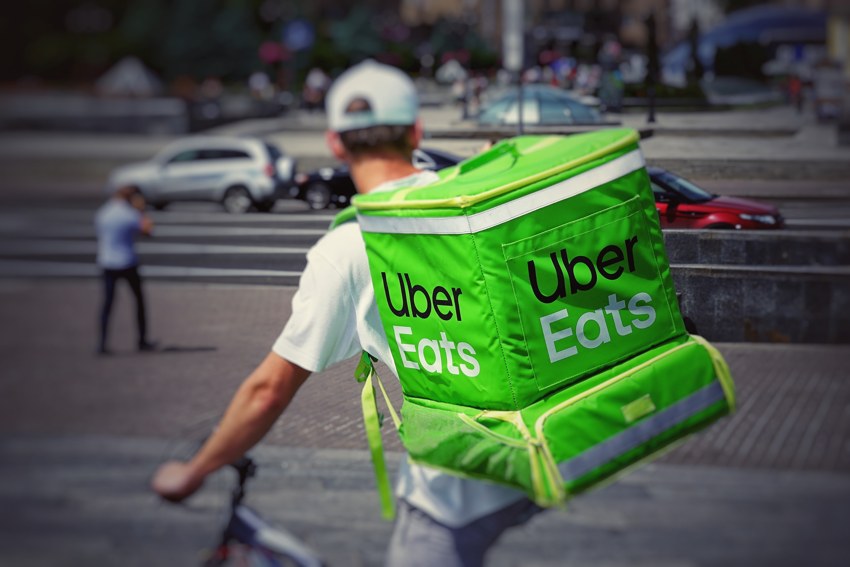
Uber has sold its food delivery business, Uber Eats, in India to local rival Zomato in an all-stock deal that gives Uber 9.99% ownership in Zomato. The move is aimed to help Uber cut losses and is expected to help Zomato to raise a mega-round to fight out its position in India’s already hyper-competitive food delivery space. With the exit of Uber Eats, the Indian food delivery market has effectively become a duopoly between Zomato and Swiggy, where Swiggy remains a leader with a significant advantage.
Food delivery continues to be an expensive business across markets. In India, companies like Zomato and Swiggy burn in millions of dollars every month with a little sign of profitability in sight. The exit of Uber Eats means the food delivery market in India is likely to consolidate and offer some respite to the existing players. However, it does not guarantee profitability to any of the existing two players.
While there is a lot to read into the Uber Eats exit from India, there are certain overarching trends that can give an insight into the fast-growing digital economy of the world.
1. Local companies enjoy a competitive advantage across Asian markets: There is a prevailing presumption in many markets in Asia including India and Bangladesh that it will take many years for local players to effectively compete with global giants such as Uber and Amazon. This theory does not hold water anymore. Uber selling off its food business to Zomato proves that local digital tech companies enjoy certain advantages in many markets in Asia and can effectively beat global players. This view gets only stronger when you pay attention to the recent precedences in a few Asian markets from Singapore to Indonesia to China to India. In India, local players lead the market in almost all verticals. One common trait that defines all these markets, however, is that local companies can access capital relatively easily. Thus it can safely be said that when access to capital is there, local players can effectively compete with global players.
For example, Uber Eats launched in India in 2017 with a high expectation to to leverage Uber’s popularity to displace incumbents Zomato and Swiggy. The company spent millions on the promotion and deep discounts to no avail. It never bettered its position from number 3. Zomato and Swiggy both forged ahead, thanks to relatively easier access to capital in India, and Uber Eats never had a chance.
2. Super-app is expensive: The idea of food delivery for Uber was an easy one. Uber already had over 2 million DAU in India when it was launching Uber Eats, which means the company thought that adding food delivery to the platform means it has a readily available customer base as well as it would improve its competitive moat. For Uber, it was akin to using its platform power and expanding into adjacent verticals. Not only Uber, Ola also did the same in India and many other ride-hailing companies in different markets followed. However, with Exit of Uber Eats and Ola has reduced its Foodpanda operation a long time ago, it shows that only platform power is not enough and building a super-app does not come cheap.
3. Food delivery companies should look for ways to make money: According to a report from The Ken, “Uber Eats lost a minimum of $1 for delivering an order throughout its time in India. This translates to a straight loss of $9 million per month. And that’s just the cost of the delivery service itself. Throw in marketing, salaries, other overheads, and the monthly burn quickly jumps to over $15 million.” The scenario is no different for Zomato, which burns about $20 million per month, and Swiggy.
Here from the Economist: “Yet as with ride-hailing, it is by no means clear if anyone can make money by delivering meals. In fact, the economics may be even worse. Coordination is more complicated. Meal-delivery firms must handle dishes that take different amounts of time to cook, while restaurants cope with orders from in-house customers. Most important, bookings must be split three ways: between delivery firms, restaurants and riders, rather than just between the ride-hailing firms and their drivers. The restaurants in particular are restive, not least because food is already a low-margin business. The most popular brands like McDonald’s and Starbucks wield the power to squeeze the delivery startups in exchange for access to millions of customers. Uber admits that Uber Eats may be forced to lower service fees for big restaurant chains.”
4. Asia is different from Western markets: The first food delivery company Takeaway.com was founded by Jitse Groen, a Dutch entrepreneur who built a highly profitable single-market food delivery business. The company since expanded to a few more markets. However, the market dynamics in the US and European markets are meaningfully different. For example, a significant percentage of Uber Eats’s orders in the US come from areas where accessing a restaurant is not convenient. This, however, is different in markets like India and Bangladesh. In order to make food delivery works in these markets, food delivery companies have to come up with a value proposition greater than mere convenience.
Food delivery remains a lucrative business across markets. According to some estimates, the market for food delivery could reach $1trn by 2023. But in order to take advantage of the market opportunities, food delivery companies have to figure out ways to make money.
